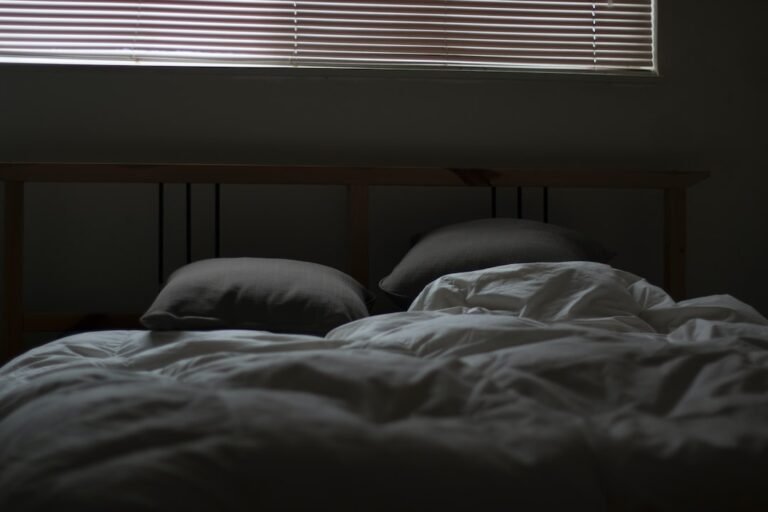7 Simple Ways to Improve Your Sleep Quality Tonight
Getting a good night’s sleep is essential for overall health and well-being. Sleep plays a crucial role in our physical and mental health, and lack of quality sleep can have negative effects on various aspects of our lives. When we don’t get enough sleep, we may experience decreased cognitive function, impaired memory, mood swings, and increased risk of chronic diseases such as obesity, diabetes, and cardiovascular problems. Therefore, it is important to prioritize good sleep habits and make it a priority in our daily lives.
Establish a Consistent Sleep Schedule
Having a consistent sleep schedule can greatly benefit our sleep quality. Our bodies have an internal clock called the circadian rhythm, which regulates our sleep-wake cycle. When we go to bed and wake up at the same time every day, we help regulate this internal clock, making it easier to fall asleep and wake up naturally. To establish a regular sleep routine, it is important to set a bedtime that allows for 7-9 hours of sleep and stick to it even on weekends. Additionally, it is helpful to create a relaxing bedtime routine that signals to our bodies that it is time to wind down and prepare for sleep.
Create a Relaxing Sleep Environment
Creating a relaxing sleep environment can greatly improve the quality of our sleep. Our bedroom should be a sanctuary for rest and relaxation. To create a calming sleep space, it is important to keep the room cool, dark, and quiet. Use blackout curtains or an eye mask to block out any light that may disrupt your sleep. Invest in earplugs or a white noise machine to drown out any noise that may disturb your sleep. Additionally, remove any electronic devices from the bedroom as they emit blue light that can interfere with our natural sleep-wake cycle.
Avoid Stimulants Before Bedtime
Stimulants such as caffeine and nicotine can interfere with our ability to fall asleep and stay asleep. Caffeine, found in coffee, tea, soda, and chocolate, is a stimulant that can stay in our system for several hours. It is best to avoid consuming caffeine at least 4-6 hours before bedtime. Nicotine, found in cigarettes and other tobacco products, is also a stimulant that can disrupt our sleep. It is best to avoid smoking or using any nicotine products close to bedtime. Additionally, it is important to limit alcohol consumption before bed as it can disrupt our sleep patterns and lead to poor sleep quality.
Incorporate Exercise into Your Daily Routine
Regular exercise has been shown to improve sleep quality. Engaging in physical activity during the day can help regulate our sleep-wake cycle and promote deeper, more restful sleep. Aim for at least 30 minutes of moderate-intensity exercise most days of the week. However, it is important to avoid exercising too close to bedtime as it can increase alertness and make it harder to fall asleep. Try to finish your workout at least 2-3 hours before bed to allow your body enough time to wind down.
Practice Relaxation Techniques

Relaxation techniques can help calm the mind and prepare the body for sleep. Incorporating relaxation techniques into your bedtime routine can promote better sleep quality. Some examples of relaxation techniques include deep breathing exercises, progressive muscle relaxation, meditation, and guided imagery. These techniques can help reduce stress and anxiety, allowing for a more peaceful and restful sleep.
Invest in a Comfortable Mattress and Pillows
The quality of our sleep surface greatly affects our sleep quality. Investing in a comfortable mattress and pillows that provide adequate support can greatly improve the quality of our sleep. A mattress that is too firm or too soft can lead to discomfort and pain, making it difficult to fall asleep and stay asleep. It is important to choose a mattress and pillows that suit your individual needs and preferences. Consider factors such as firmness, material, and support when choosing a mattress and pillows.
Limit Screen Time Before Bed
The blue light emitted by electronic devices such as smartphones, tablets, and computers can interfere with our natural sleep-wake cycle. Exposure to blue light before bedtime can suppress the production of melatonin, a hormone that regulates sleep. To promote better sleep, it is important to limit screen time at least 1-2 hours before bed. Instead of scrolling through social media or watching TV, engage in relaxing activities such as reading a book, taking a warm bath, or practicing relaxation techniques.
Try Natural Sleep Aids
Natural sleep aids can be helpful for those struggling with sleep difficulties. Some natural sleep aids include herbal teas such as chamomile and valerian root, melatonin supplements, lavender essential oil, and magnesium supplements. These natural remedies can help promote relaxation and improve sleep quality. However, it is important to consult with a healthcare professional before trying any new supplements or remedies to ensure they are safe for you.
Making Sleep a Priority for Your Health and Well-being
In conclusion, good sleep is essential for overall health and well-being. Poor sleep can have negative effects on our physical and mental health, impairing our cognitive function, mood, and increasing the risk of chronic diseases. Therefore, it is important to prioritize good sleep habits and make it a priority in our daily lives. By establishing a consistent sleep schedule, creating a relaxing sleep environment, avoiding stimulants before bedtime, incorporating exercise into our daily routine, practicing relaxation techniques, investing in a comfortable mattress and pillows, limiting screen time before bed, and trying natural sleep aids, we can improve the quality of our sleep and reap the benefits of a good night’s rest. So make sleep a priority and start implementing these tips today for a healthier and happier you.







